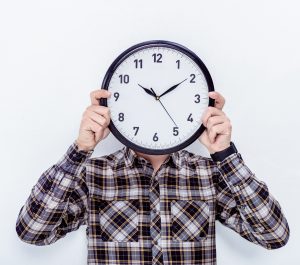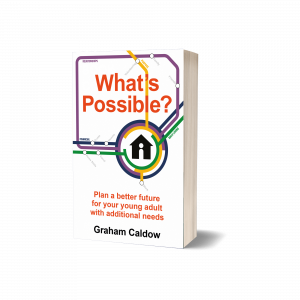
Have you ever sat in a meeting about your child and thought, “Yes, I have tried all those ideas. I’m not the complete idiot you seem to think I am.”
I’ve experienced that many times. I’m not the only parent of a child with additional needs to feel my opinion isn’t valued highly by people we call experts.
Here are my thoughts on what an expert is, what it means to be an expert, and what we can do with that knowledge.
Disclaimer: This post contains affiliate links, which means I may receive a small commission at no extra cost to you if you make a purchase. Please read our disclaimer notice for more information.
An expert defined
My lay definition of an expert was someone who has training in something and then spent years doing that thing. But I never thought about it much more than that. As it happens the Merriam-Webster Dictionary has a more precise definition as “knowledge representing mastery of a particular subject… derived from training or experience”(Merriam-Webster, accessed 3/1/2024).
I was a novice parent, and when my second daughter was born, I let the doctors, speech therapists, occupational therapists, and teachers occupy that space of “expert.” But as time went by, I started to question how much these experts knew about my daughter. Many of them saw her once or twice a year. I began to realise they weren’t experts on my daughter, just one aspect of my daughter’s life.
As Malcolm Gladwell argues in Outliers: The Story of Success, if you spend 10,000 hours doing something, then you become an expert at it. His definition of expert suggests we should credit our knowledge much more than most of us do as parents.
The Unknown Expert
As the years went by, I found myself in many meetings with professionals who would suggest strategies to deal with an issue. Occasionally someone would suggest an obvious answer. But it’s not always easy to say, “We’ve tried that already and it didn’t work,” because you start to doubt yourself and whether you did it right, after all they are the experts.
If I counted every hour I’ve spent with my daughter since she was born, watching her grow and learn, seeing her frustrations, and sharing in her delight, then I absolutely know my daughter better than anyone else except my wife. I’ve known her at home, in her private moments, when her insecurities become visible. I can see before others her anxieties and I know in advance what she will find challenging.
The problem was I didn’t count this knowledge as something that made me an expert, and what I needed to do was think of myself as an expert on my daughter.
The Challenges
Understanding this expert status is one thing, but claiming it is entirely different. That was my first challenge, owning this expertise. When I label expertise in this way, I’m not trying to compete with professionals in their field but rather claim expertise on my daughter and what she needs.
The second challenge was to accept that while professionals wanted my daughter to succeed, they were not the ones who would live with the consequences if that didn’t happen. Their life continues regardless. They might think about my daughter after our meeting and possibly come up with a new strategy for the next day. But in ten years she won’t be part of those professionals’ lives.
I’m totally invested in her long-term future like no professional expert could ever be. When things go wrong, it’s me who will pick up the pieces. When she succeeds, it’s the professionals who take the credit, but I can live with that because it has never been about me or them it’s about her.
There’s also a third challenge: learning when to let go of my role as the expert. While she is young, I have taken responsibility for guiding her future, but there will always come a time when she is the only expert on what she wants and needs. I should be ready for that moment and step back from being the expert to becoming a trusted guide.
Conclusion
It’s taken me a long time to realize I’m the expert on my daughter. Through years and many multiples of 10,0000 hours, I know how she will act and react to certain situations, even if I don’t always understand how she feels.
What I need to do is own this expertise, use it, and not be quiet when important decisions are being made about her future because I’m best placed to guide professionals on what should be the direction of travel. And that is the challenge we all face as parents and main caregivers to our children.
Graham Caldow

____________________________________________________________________
With my daughter we’ve created a cooking program called Independent Cooking Made Easy. It’s a Safe, Simple, System that shows you how to teach someone with additional needs how to cook for themselves without your supervision or support.


I’m the father of a daughter with additional needs. I understand how the journey can be tough, frustrating, and lonely. Sometimes it’s hard to imagine a future where they are secure, have self-dignity, have purpose in their lives, and have a community around them. I learned a lot from our journey, and that’s why I wrote, What’s Possible? Plan a better future for your young adult with additional needs. It shows you how to start making a life plan with your child.
